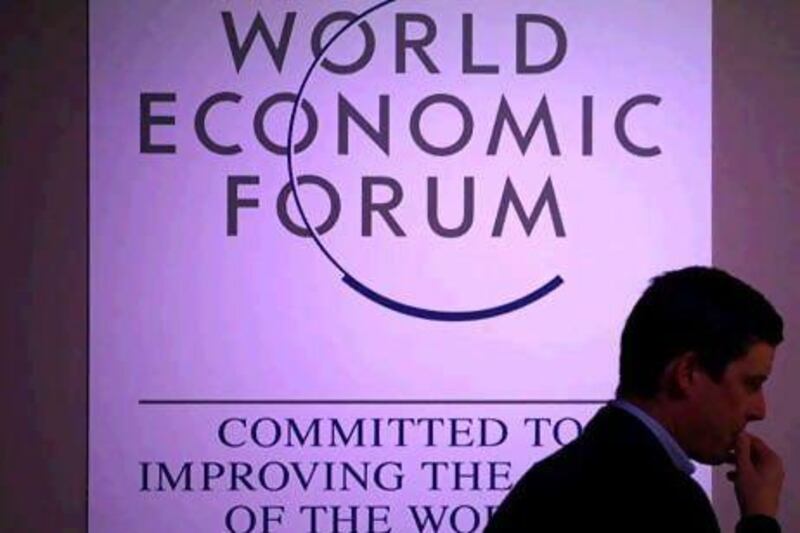The World Economic Forum, which opens in Davos today, has been hailed as a unique opportunity for decision makers from across the globe to discuss, and hopefully solve, the problems of the world economy.
It has also been criticised as a self-congratulatory social event for the "1 per cent", the rich and cosseted business and political elite who run the world at the expense of the "99 per cent". It is the brainchild and life's work of one man, Professor Klaus Schwab. Here he gives his view of the Davos phenomenon.
How has the World Economic Forum changed since its inception in 1971? Is it still fulfilling its original aim of "improving the state of the world"?
The World Economic Forum is more relevant in today's world than ever before in our 42-year history. The challenges that the world is facing today are so manifold and complex, that they can't be tackled by just government or business alone.
Across the world, decision-makers are struggling to take action on critical economic, political and societal issues. The World Economic Forum is uniquely placed to provide a platform for discussions and ideas for these leaders from all areas of society to come together to look for joint solutions to these challenges.
That is one key characteristic that has remained constant throughout the history of this organisation. It is only through the collaborative efforts of all stakeholders from global society that we can make true progress. And that is the reason why we continue to improve the state of the world, by bringing stakeholders together to further the global public interest.
The background this year seems to be the "crisis of capitalism". Do you think the world economic system is in crisis?
The theme of this year's annual meeting is The Great Transformation: Shaping New Models. Obviously, an important part of the topics that will be discussed in Davos will be the crisis of capitalism. The system that has led us into the crisis has been outdated for years. We will not overcome the crisis in the long term if we continue to deny the need to overhaul the system. But the theme of the meeting goes beyond that.
We are living in an era of great upheaval - probably the most interdependent and fast-paced era in history. On so many levels, we have to realise that we need new models to tackle the new challenges that are facing the global community. It will require more than just reforming the capitalist system - we need a new holistic approach to leadership.
How does the Middle East fit into the World Economic Forum's global perspective? What are your thoughts on the long-term repercussions of the Arab Spring?
The Spring movement in many countries of the Arab world is a good example of the great transformation that we are living through at the moment. Through the rapid spread of information technology, power is dispersed and diffused today.
In today's world, there is an unprecedented imperative for decision-making to be more inclusive and bottom-up to ensure social cohesion. However, there is one other key element that is important not only in the Spring movements, but also in other major developments of the past year: we need to recognise that a key stakeholder in global affairs is the younger generation. More than 50 per cent of the global population is under the age of 27; it is ultimately their future that will be impacted by the decisions made today. We must incorporate inter-generational accountability and responsibility into everything we undertake and, this year, the annual meeting will strongly integrate youth leaders into all aspects of the programme.
From a personal perspective, what ambitions do you have left for the World Economic Forum? How will the institution evolve over coming years?
The World Economic Forum will continue to play an important role in global affairs, precisely because it has such a unique space as a forum for decision-makers. In fact, in the coming years it will become increasingly relevant to have a platform that allows all stakeholders from global society to come together. Our Global Risks 2012 report, which looked ahead at risks over a 10-year framework, pointed to both the dangers and opportunities of our increasingly interconnected, interdependent world.
There will be a stronger need over the coming years for a forum such as ours. It is also telling that, despite the dire economic outlook, we have reached record participation numbers for our 2012 Annual Meeting in Davos. This demonstrates the fact that leaders feel the need to come together in order to collectively and collaboratively address the daunting global challenges that lie ahead of us. When looking at all the challenges we face today and in the future, it is clear that, above all, a spirit of global trusteeship is needed to ensure that global priorities prevail over narrow, protectionist interests.
This is the "Spirit of Davos" and all our efforts will continue to focus on fostering this spirit in all our work.





